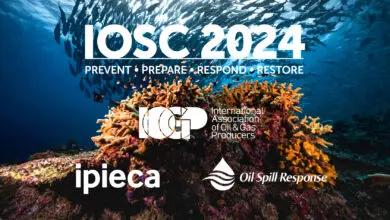
Before you leave the house, do you check to make sure you have your wallet, keys, and phone? Congratulations, you have completed a Start Work Check (SWC).
That’s a very simple example of what the Start Work Checks encourage workers to do. They are an effective human performance tool the IOGP Safety Committee is rolling out to help save lives and reduce injuries in the oil and gas industry.
Start Work Checks are standardized and simplified checklists of safeguards that workers complete at the job location immediately before work commences. The Start Work Checks list the safeguards and controls that must be in place to prevent serious injury or death. The tool is designed to incorporate a peer review, or “verifier”, who confirms the safeguards as a second set of eyes. If a worker or verifier cannot confirm or verify a safeguard, they should stop and seek help.
Start Work Checks are recommended for companies who have launched, or are planning to launch, the Life-Saving Rules.
Pulse asked some of the Task Force Members (Eileen McGrath-Connor, Chevron; Charles Fontenot, Chevron; Kirsty Walker, Schlumberger; and Mariana Carvalho, IOGP Safety Committee Manager), about this new industry resource.
“The Start Work Checks were initially designed as a tool to promote the use of Life-Saving Rules amongst the workforce at the ground level,” said Charles Fontenot. “Chevron already had success with Start Work Checks, and the Life-Saving Rules Task Force felt these tools could be used by IOGP. The Checks were created by people who work in the field, so it’s one of the few tools the field workforce has that they ‘own.’ They can look at them right before they do the work and double-check that the procedure is set the way it’s supposed to be, and that the safeguards that are supposed to be provided – be it hardware or equipment – are in place, because if something occurs, they are the ones at the point of risk, so the Check is something to really protect them.”
“When we were developing the Start Work Checks, we looked at the Life-Saving Rules that were activity based, because Start Work Checks are very much about the activity or task,” added Kirsty Walker. “They enable us to apply the Life-Saving Rules directly into work activities. The Life-Saving Rules are based on data that IOGP has been collecting since 1985, including an analysis of several thousand fatal events.”
The 13 routine activities the Start Work Checks cover are: Confined Space, Driving, Energy Isolation, Hot Work, Safe Mechanical Lifting, Working at Height, De-isolation and Re-energizing, Excavation, Man-riding, Working Around Mobile Equipment, Energized/Live Electrical Systems, Working Near Water, and Rig Floor Tubular Handling.
“All of the Start Work Checks map to a Rule or guidance that IOGP has already published or that has industry recognition. And that way, people can go and refer to a report,” explained Eileen McGrath-Conner. “The Start Work Checks are designed to be that final step before the worker is exposed to a hazard, and it’s one final confirmation that all the critical safeguards to protect that worker from a fatality or serious injury are in place and functioning properly.”
Continuing, McGrath-Conner said: “I think the standardization that comes with having IOGP involved is really powerful, because now operators will work from the same tool, and our workers can get really familiar with what those safeguards are and know what’s protecting them. Another powerful aspect of the SWCs is that they empower workers. We already have job planning tools, but they may or may not involve the entire crew. And really, what SWCs do is empower the person who’s exposed to that hazard to confirm the safeguards that are protecting them before they start work. Everyone has empowered their workers with ‘stop work’ authority, but this is almost ‘start work’ authority. If things are not in place, it says on the Check that you need to stop and get help and make sure that these safeguards are in place before you work. If a worker is not comfortable with a particular safeguard, they are empowered to pause that work.”
The Task Force is translating the Start Work Checks into multiple languages, as well as developing an app to enable frontline workers to conduct the Checks on their phones.
Supporting files currently available for download include a guidance document (IOGP Report 459-1 – Life-Saving Rules – Start Work Checks) that Task Force Members urge implementing companies to consult as they plan their SWC launch, as well as PDFs of the individual checks, including editable versions. These will support companies through their deployment and implementation of the Start Work Checks.
The implementation tools are available on the IOGP website.
This Report is available to download from the IOGP Publications library.



